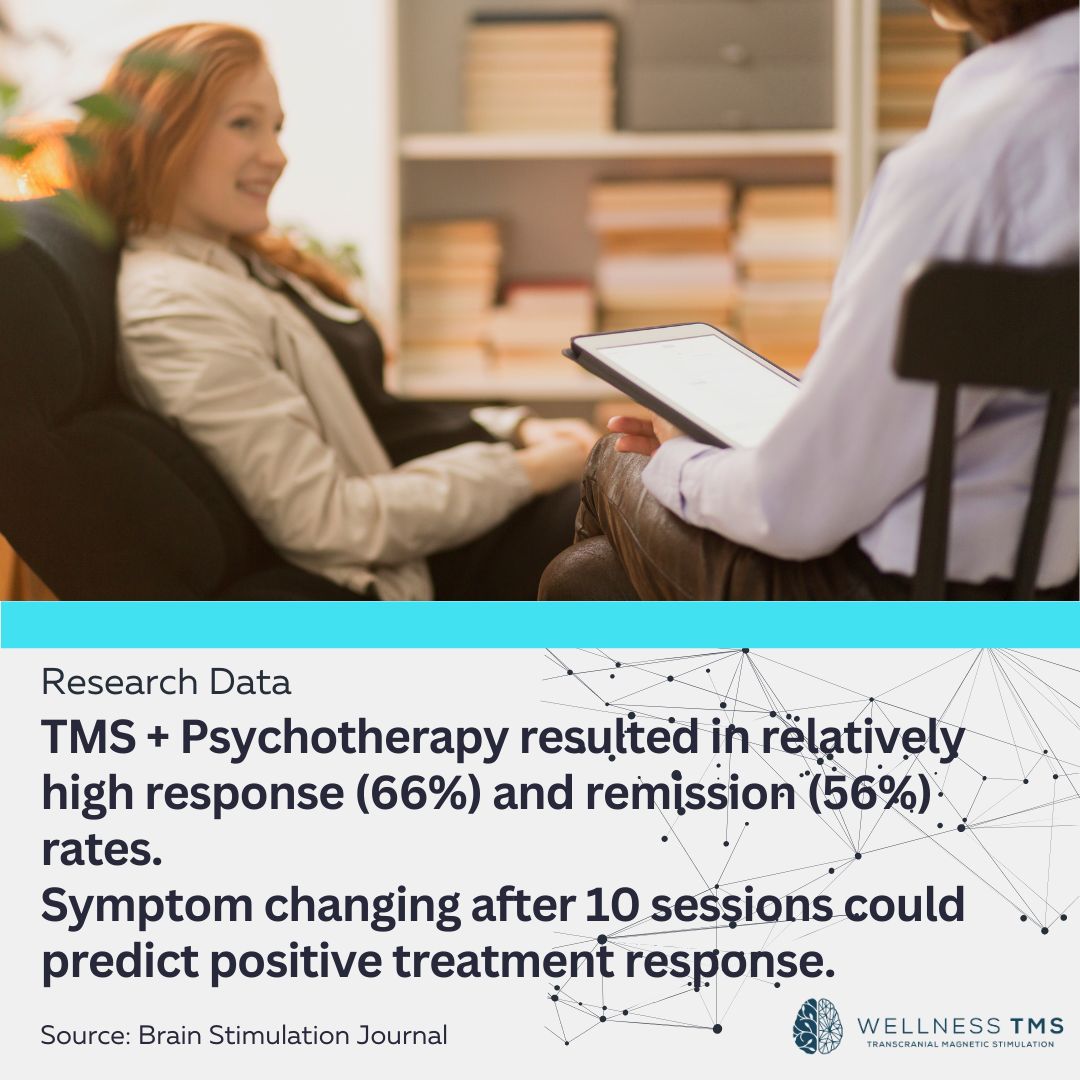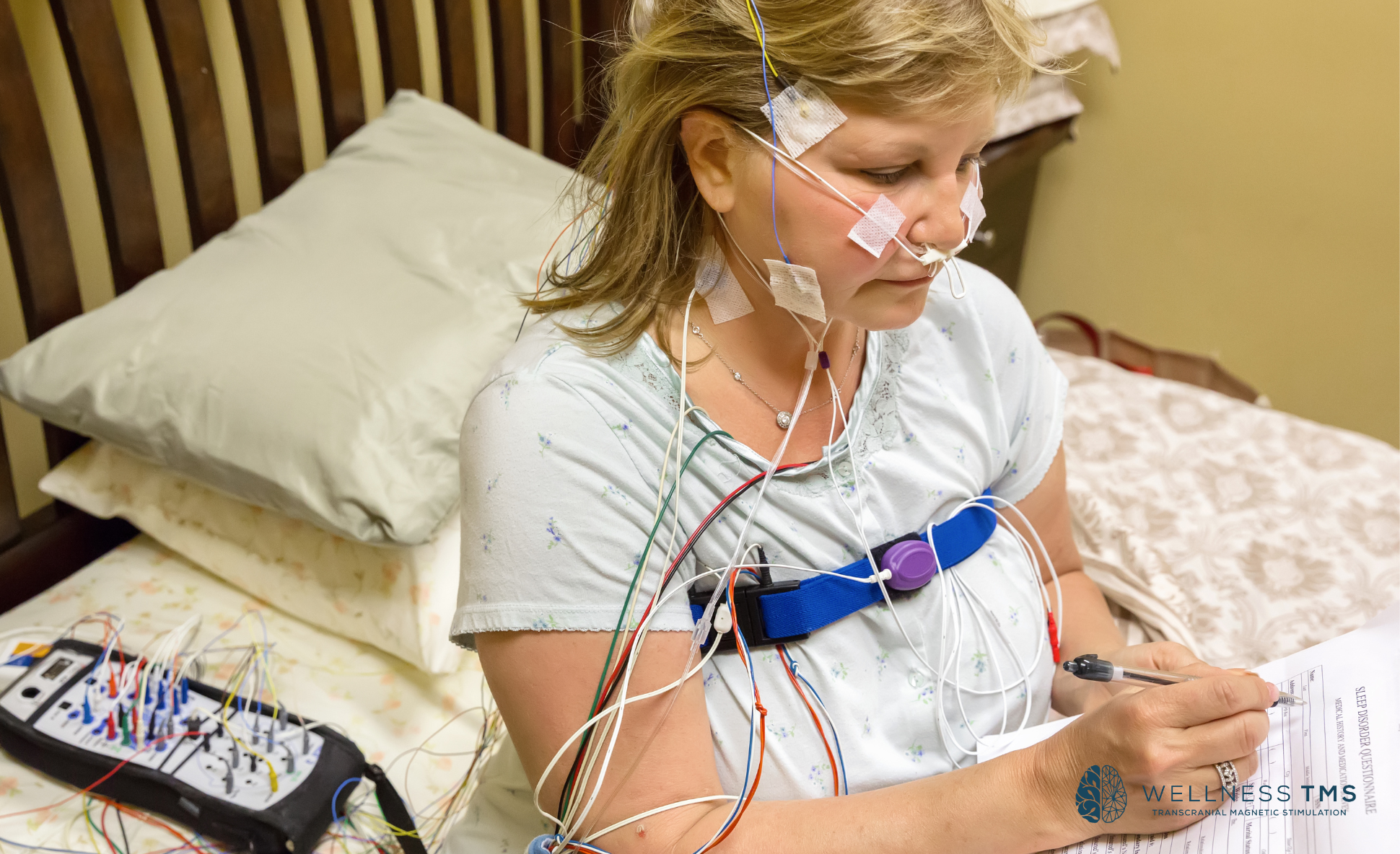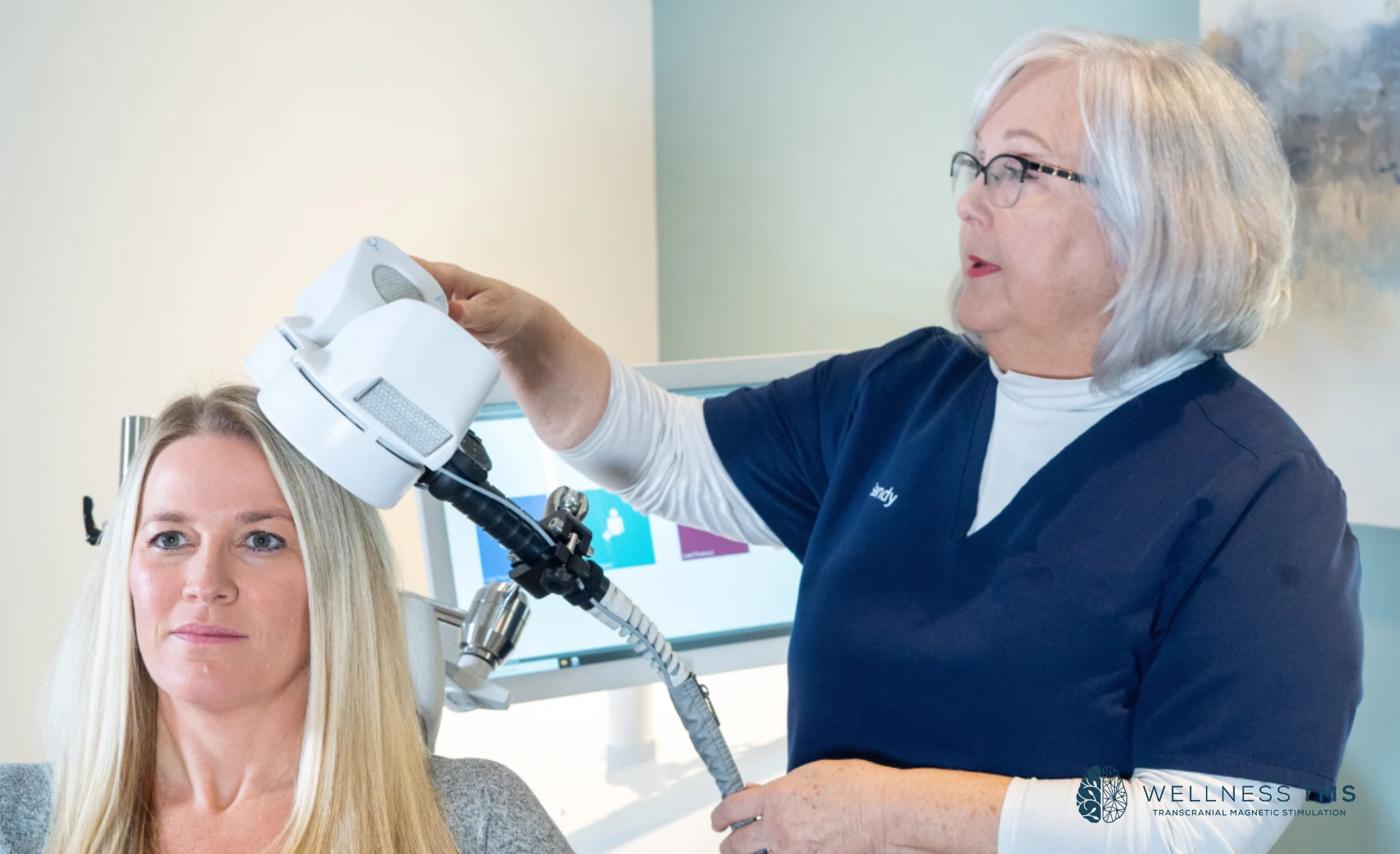Highlights:
- The article explores the integration of Transcranial Magnetic Stimulation (TMS) with various therapeutic modalities, including Cognitive Behavioral Therapy (CBT), pharmacotherapy, psychoeducation, and mindfulness-based interventions.
- This holistic approach aims to enhance the efficacy of TMS by addressing multiple aspects of mental health disorders simultaneously.
- Research suggests that combining TMS with these complementary practices can lead to more robust and sustained improvements in depressive symptoms, particularly for individuals with treatment-resistant depression.
- These interdisciplinary efforts hold promise for revolutionizing mental health treatment, offering personalized and comprehensive strategies for individuals facing psychiatric and neurological conditions.
Delving into the innovative landscape of mental health treatment, the integration of Transcranial Magnetic Stimulation (TMS) with complementary therapeutic practices heralds a new dawn. This progressive approach seeks to elevate the efficacy of TMS by addressing multifaceted dimensions of mental health disorders concurrently.
The genesis of PrTMS® therapy emerges from the captivating realms of neuroscience and neuroplasticity, where the astounding adaptability of the brain—its capacity for restructuring and rewiring—takes center stage. This remarkable attribute serves as the bedrock of PrTMS® therapy, propelling it into a league of its own.
In a PrTMS® session, sophisticated equipment administers targeted electromagnetic pulses to specific brain regions. These calibrated pulses intricately target neural pathways associated with social communication and behavior regulation, often impaired in individuals grappling with mental health challenges.
These pulsations spark neural activity in these critical areas, fostering the genesis of new connections while fortifying existing ones. Through the rhythmic stimulation of these neural circuits, PrTMS® therapy facilitates the brain’s intricate rewiring process, forging pathways that are more streamlined and efficient.
TMS in Conjunction with Cognitive Behavioral Therapy (CBT)
The fusion of TMS with Cognitive Behavioral Therapy (CBT) garners increasing attention for its synergistic prowess. CBT, a cornerstone of psychotherapy, empowers individuals to cultivate healthier cognitive patterns. Employing a fusion of cognitive and behavioral strategies, CBT illuminates pathways out of the darkness of depression. Therapists meticulously dissect depressive thought patterns, dismantling barriers to progress. At its core, CBT endeavors to reshape emotional states, recognizing them as potent catalysts for behavioral change. Cognitive strategies within CBT coax individuals to confront and challenge negative cognitions, gradually diminishing their sway. Techniques such as cognitive restructuring lay bare the mechanics of thought patterns, unraveling the web of emotions and triggers. In its wake, therapists offer a rational perspective, tempering cognitive distortions. A prevalent cognitive distortion, “mind reading,” often clouds the perception of individuals battling depression. By confronting such beliefs and other depressive cognitions, individuals embark on a journey toward mental fortitude and self-awareness.TMS Therapy and Pharmacotherapy
The integration of TMS with pharmacotherapy emerges as another frontier of interest, particularly for individuals grappling with treatment-resistant depression. Studies highlighted in the American Journal of Psychiatry underscore the potential synergy between TMS and antidepressants, promising more enduring relief from depressive symptoms. The gradual tapering of antidepressant medication under medical supervision becomes pivotal, mitigating the risk of withdrawal symptoms and relapses. A meticulously crafted tapering plan, tailored to individual needs, safeguards against the perils of abrupt cessation, ensuring a smooth transition toward holistic healing.TMS and the Power of Psychoeducation
Psychoeducation emerges as a formidable ally in enhancing the efficacy of TMS interventions. By marrying TMS with psychoeducational initiatives, individuals gain profound insights into their condition, bolstering treatment adherence and outcomes. When combined, TMS therapy and psychoeducation complement each other in several ways. Psychoeducation can prepare individuals undergoing TMS therapy by helping them understand the underlying mechanisms of their condition and the potential benefits of the treatment. By reducing depressive symptoms and improving overall mood, TMS therapy can enhance cognitive functioning, attention, and motivation, making individuals more receptive to psychoeducational interventions. Furthermore, the combination of TMS therapy and psychoeducation can foster long-term recovery by addressing both the biological and psychological aspects of mental illness. While TMS targets neural circuits implicated in mood disorders, psychoeducation equips individuals with the knowledge and skills to effectively manage their condition and prevent relapse. This integrated approach promotes holistic healing and empowers individuals to take an active role in their mental health journey.TMS Harmonizing with Mindfulness-Based Interventions
The integration of mindfulness-based practices, such as mindfulness-based cognitive therapy (MBCT), amplifies the therapeutic potential of TMS. These mindfulness modalities alleviate stress and enhance mood, synergizing with TMS to foster mental resilience and well-being.Pioneering Research into TMS and Psychotherapy Modalities
Pioneering studies spotlight the transformative potential of combining TMS with psychotherapy modalities. These interdisciplinary endeavors unveil promising avenues for personalized, effective treatment strategies, promising a brighter horizon for mental health care. As the frontier of TMS therapy continues to expand, it holds the promise of revolutionizing mental health care, ushering in a new era of healing and hope.
TMS and the Power of Psychoeducation
Psychoeducation emerges as a formidable ally in enhancing the efficacy of TMS interventions. By marrying TMS with psychoeducational initiatives, individuals gain profound insights into their condition, bolstering treatment adherence and outcomes. When combined, TMS therapy and psychoeducation complement each other in several ways. Psychoeducation can prepare individuals undergoing TMS therapy by helping them understand the underlying mechanisms of their condition and the potential benefits of the treatment. By reducing depressive symptoms and improving overall mood, TMS therapy can enhance cognitive functioning, attention, and motivation, making individuals more receptive to psychoeducational interventions. Furthermore, the combination of TMS therapy and psychoeducation can foster long-term recovery by addressing both the biological and psychological aspects of mental illness. While TMS targets neural circuits implicated in mood disorders, psychoeducation equips individuals with the knowledge and skills to effectively manage their condition and prevent relapse. This integrated approach promotes holistic healing and empowers individuals to take an active role in their mental health journey.TMS Harmonizing with Mindfulness-Based Interventions
The integration of mindfulness-based practices, such as mindfulness-based cognitive therapy (MBCT), amplifies the therapeutic potential of TMS. These mindfulness modalities alleviate stress and enhance mood, synergizing with TMS to foster mental resilience and well-being.Pioneering Research into TMS and Psychotherapy Modalities
Pioneering studies spotlight the transformative potential of combining TMS with psychotherapy modalities. These interdisciplinary endeavors unveil promising avenues for personalized, effective treatment strategies, promising a brighter horizon for mental health care. As the frontier of TMS therapy continues to expand, it holds the promise of revolutionizing mental health care, ushering in a new era of healing and hope.Resources:
- https://www.sciencedirect.com/science/article/pii/S1935861X17309609
- https://www.sciencedirect.com/science/article/abs/pii/S0165032718300272
- https://www.ncbi.nlm.nih.gov/pmc/articles/PMC2834575/
- https://www.choosingtherapy.com/cbt-for-depression/#:~:text=Cognitive%20behavioral%20therapy%20(CBT)%20is,problem%2Dsolving%20and%20homework%20assignments.]




